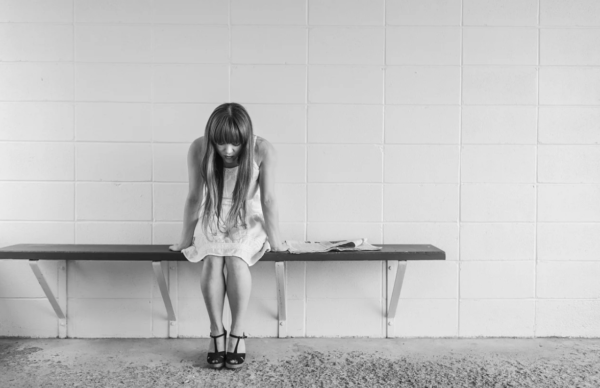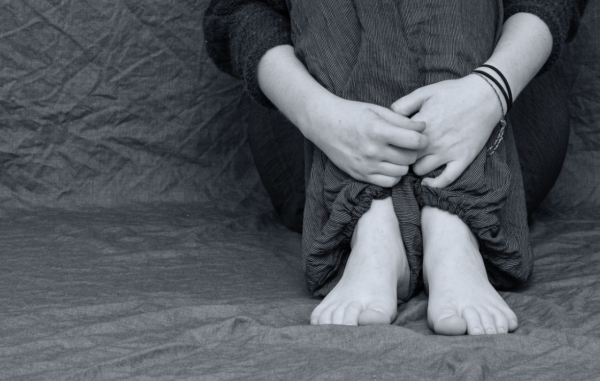
At Shanti Recovery and Wellness, we see a lot of patients who struggle with substance use disorder in addition to other mental health concerns, especially depression and anxiety disorders. Studies have shown that our clinic isn’t unique in this respect. There is a well documented link between depression, anxiety, and addiction.
Scientists are still exploring exactly how these conditions interact with one another to create the perfect storm for some patients.
While there’s a lot we still have to learn about addiction, anxiety, and depression, the good news is that there’s a lot we already know.
Even better news? Every day, we see patients recovering, not just from addiction but from depression and anxiety, as well.
Today, let’s look at what we do know about the link between depression, anxiety, and addiction.
What are Depression and Anxiety?
Depression and anxiety disorders are chemical imbalances in the brain that impair the day-to-day activities of patients.
Depression

Depression is not just “the blues.” It’s normal to feel sad from time to time, especially in response to negative events like a death, a layoff, or a breakup. Depression sets itself apart from “normal” sadness by its persistence. Unlike “normal” sadness, depression can continue for months or years.
Typical symptoms include: lethargy, sleep disturbances (too much or too little sleep), loss of energy, inability to concentrate, loss of interest in things that typically animate you, appetite changes, and plummeting self-esteem.
20% of patients with clinical depression also have a substance use disorder.
Anxiety

Anxiety disorders come in several forms, but they all share a common trait: they make the patient feel a nervousness or panic that interferes with everyday tasks. The anxiety may be acute—in the form of panic attacks—or it may be pervasive. Generalized Anxiety Disorder, Obsessive-Compulsive Disorder, Panic Disorder, Post Traumatic Stress Disorder, and specific phobias are all examples of anxiety disorders, each with different presentations.
Typical symptoms of anxiety disorders include: racing thoughts, racing heart, breathing difficulties, sleep disturbances, appetite changes, lack of concentration, anger, irritability, and avoidant behaviors.
Like people who struggle with clinical depression, 20% of patients with anxiety disorders also have a substance use disorder.
Self-Medicating and the Slippery Slope to Addiction

In response to these uncomfortable (and sometimes confusing) symptoms, many patients use drugs and/or alcohol to address symptoms of their underlying mental health condition. This is called “self-medicating.”
For example, many patients with anxiety disorders use alcohol—a central nervous system suppressant—to address anxiety symptoms. Others seek to escape depression symptoms with stimulants to help get through the day’s activities.
Most drugs of abuse work on the limbic system—the same system affected by depression and anxiety. While they may appear to offer relief in the short-term, all drugs of abuse will reinforce and worsen the chemical imbalances caused by underlying mental health conditions in the brain, making them an exceptionally poor choice for “treatment.”
Effective Treatment for Dual Diagnosis Patients

When a patient is diagnosed with substance use disorder (SUD) and another mental health condition like depression and anxiety, this is referred to as a “dual diagnosis.” One in four SUD patients are considered “dual diagnosis patients.”
Dual diagnosis patients have special treatment needs that set them apart from patients with a single diagnosis. Because their addiction and their underlying mental health conditions are so intertwined, they must be addressed together and at the same time by treatment professionals who understand both conditions.
If only one condition is addressed and the other is left untreated, recovery is much more difficult. Treating the substance use disorder and the condition that feeds it at the same time gives patients the tools they need to stick with a treatment program in the long term.
We’re Here to Help
At Shanti Recovery and Wellness, we are fully committed to serving dual diagnosis patients and delivering evidence based treatment designed to help patients recover from multiple simultaneous behavioral and mental health challenges. Our in-house behavioral health professionals love working with dual diagnosis patients on the road to recovery. Call us today at 1-503-206-8850 to learn more about how we can help.
